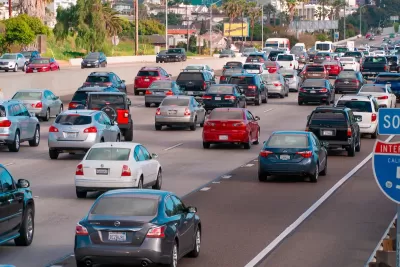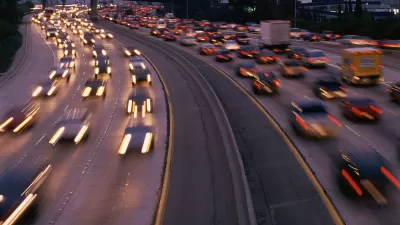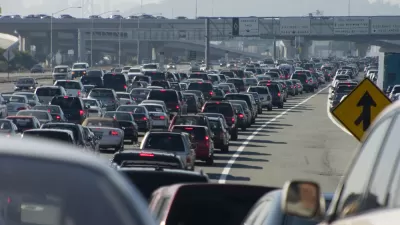Despite abundant research showing that roadway expansions provide limited congestion relief and increase long-term traffic problems, they still occur due to wishful thinking: advocates claim that “this” project is different.

“Why traffic never gets better,” by David Edmondson is a good discussion of induced vehicle traffic (the additional vehicle travel that results when roadways are expanded), and therefore the futility of using roadway expansions to reduce traffic congestion. “Congestion always wins,” he concludes.

The Fundamental Law of Traffic Congestion states that unpriced roads will always remain congested due to the phenomenon of induced demand. Induced demand is caused by people driving more, additional truck traffic, additional migration, and people switching onto the widened road. These are all economically beneficial, but the benefits of road widening are because congestion returns to the same level, not because congestion is mitigated.
Roadway widening still occurs because of wishful thinking: either that “this” project will be different, or that the short-term benefits will be worthwhile. Matthew Turner, one of the authors of the 2009 study, put it succinctly in a New York Times story last year.
“If you keep adding lanes because you want to reduce traffic congestion, you have to be really determined not to learn from history,” Turner said.
FULL STORY: Why traffic never gets better

Study: Maui’s Plan to Convert Vacation Rentals to Long-Term Housing Could Cause Nearly $1 Billion Economic Loss
The plan would reduce visitor accommodation by 25,% resulting in 1,900 jobs lost.

North Texas Transit Leaders Tout Benefits of TOD for Growing Region
At a summit focused on transit-oriented development, policymakers discussed how North Texas’ expanded light rail system can serve as a tool for economic growth.

Using Old Oil and Gas Wells for Green Energy Storage
Penn State researchers have found that repurposing abandoned oil and gas wells for geothermal-assisted compressed-air energy storage can boost efficiency, reduce environmental risks, and support clean energy and job transitions.

Santa Barbara Could Build Housing on County Land
County supervisors moved forward a proposal to build workforce housing on two county-owned parcels.

San Mateo Formally Opposes Freeway Project
The city council will send a letter to Caltrans urging the agency to reconsider a plan to expand the 101 through the city of San Mateo.

A Bronx Community Fights to Have its Voice Heard
After organizing and giving input for decades, the community around the Kingsbridge Armory might actually see it redeveloped — and they want to continue to have a say in how it goes.
Urban Design for Planners 1: Software Tools
This six-course series explores essential urban design concepts using open source software and equips planners with the tools they need to participate fully in the urban design process.
Planning for Universal Design
Learn the tools for implementing Universal Design in planning regulations.
Ascent Environmental
Borough of Carlisle
Institute for Housing and Urban Development Studies (IHS)
City of Grandview
Harvard GSD Executive Education
Toledo-Lucas County Plan Commissions
Salt Lake City
NYU Wagner Graduate School of Public Service





























